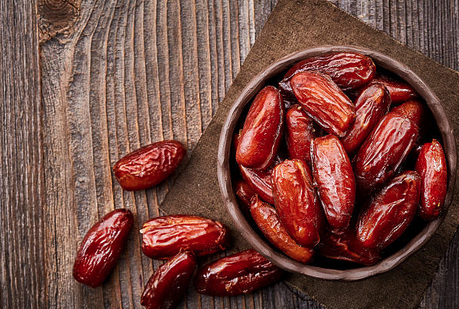by The El Reportero staff
In a world where we are increasingly conscious of what we eat, dates are re-emerging as an ancient food packed with health benefits. This fruit, native to the Middle East and cultivated for over 6,000 years, has been part of the diet of numerous cultures for one simple reason: it is a true natural superfood.
Eaten both fresh and dried, dates stand out for their sweet flavor, fleshy texture, and versatility in the kitchen. But beyond their culinary value, this fruit has a nutritional profile worthy of attention.
A Natural Source of Energy
One of the most obvious benefits of dates is their high energy content. With approximately 280 calories per 100 grams, mostly from natural sugars such as glucose and fructose, dates are an excellent snack for athletes or people with high physical demands. Unlike processed foods loaded with refined sugar, dates provide clean energy, along with fiber and micronutrients.
Rich in fiber and digestively healthy
Fiber is an essential component for healthy digestion, and dates are a good source of it. Consuming dates regularly can promote intestinal transit, prevent constipation, and help maintain a balanced gut microbiota. In fact, it is estimated that just three medium-sized dates can provide around 2 grams of fiber.
Furthermore, due to their satiating effect, they can be an ally in weight-control diets, as long as they are consumed in moderation.
Potassium and more: a cocktail of micronutrients
Dates are also rich in minerals, especially potassium, an essential electrolyte for muscle function and cardiovascular health. A few dates can provide as much potassium as a small banana.
They also contain magnesium, calcium, iron, and vitamin B6, key nutrients for the functioning of the nervous system, red blood cell production, and protein metabolism.
Antioxidants that Protect
It’s not just their sweetness that makes dates special: they are also an important source of natural antioxidants such as flavonoids, carotenoids, and phenolic acid, which help combat oxidative damage caused by free radicals.
Regular consumption of antioxidants is associated with a reduced risk of chronic diseases such as type 2 diabetes, cancer, and neurodegenerative diseases. In this sense, dates represent a natural and tasty way to maintain long-term health.
A Substitute for Processed Sugar
More and more people are turning to dates as a natural sweetener. Grinding them can produce a thick paste that serves as a healthy sugar substitute in desserts, smoothies, breads, and cookies. Unlike refined sugar, which lacks nutrients, this date paste retains all the nutritional benefits of the original fruit. Furthermore, their moderate glycemic index means that their consumption does not cause sudden spikes in blood glucose, especially when accompanied by healthy fats or proteins.
How to incorporate them into your diet
Dates can be enjoyed alone as a snack, stuffed with nuts, in salads, yogurts, desserts, and even in savory dishes like tagines or couscous. One of the most appreciated varieties is the Medjool, known for its large size and softness, making them ideal for eating unprocessed.
It is recommended to store them in a cool place or in the refrigerator if they are fresh, and check for mold or fermentation before eating them.
A sweet legacy
Far from being a passing fad, dates remind us that nature offers sweet, healthy, and sustainable options. In a context where many people are looking to reduce their consumption of sugar and ultra-processed products, this fruit is positioned as a simple, effective, and delicious alternative.
More than just a fruit, dates are a legacy of nutritional wisdom that continues to bear fruit, from desert oases to modern tables.



